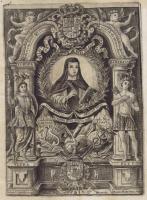Meaning of The State is me
What is the State I am:
"I am the state" (l’Etat c’est moi) is he motto of absolutism coined by the King of France and Navarre Louis XIV (1638-1715) from 1643 until his death.
According to historians, the statement "I am the State" was pronounced by King Louis XIV when he saw the disagreement that the court in Paris had against the approval of the edicts presented by the monarch. The phrase indicates how absurd Louis XIV saw the discussion, since he expected all his proposals to be accepted without question.
Despite the uncertainty that the phrase was actually said by Louis XIV, the attribution of this argument reflects the essence of the heyday of absolutism it represented. The phrase "I am the State" summarizes the conception of the divine right to rule that the king or monarch had from birth, transmitted by inheritance, which placed him above the law.
Louis XIV, also known as "the Sun King", represents the height of the historical period known as monarchical absolutism, which was characterized by the concentration of all power in the monarch or ruler.
Historical meaning of "the State is me"
"The State is me" represents the period in Europe known as monarchical absolutism that begins from the beginning of the 17th century to the end of the 18th century, culminating in the French Revolution of the year 1789.
The phrase pronounced by the monarch Louis XIV reflects monarchical absolutism and introduces the historical period that arises with the birth of the Enlightenment in the same period. Because he harbored all the powers in his person, supported also by the clergy, he also incarnated the role of patron of the arts, encouraging intellectual and artistic development for classes nobles.
The Enlightenment brought to the eighteenth century the ideology of the primacy of reason and the idea of man as the owner of his historical destiny. Thanks to this growing movement, the political regime known as enlightened despotism was born, as a phase after absolutism, which transforms the slogan "The State is me" by "Everything for the people, but without the people", which reflects the consciousness of the rulers as a protective father of their subjects children without sacrificing autocracy or power absolute.
In absolutism and enlightened despotism, the nobility was stripped of its political function, becoming a court aristocracy that contributed together with the bureaucracy, the complex diplomacy and the specialized army, to the intensification of demographic crises (high mortality), crises in agriculture (inequality), food distribution crises (famine).
The rise of social and political conflicts and the growing power of the emerging mercantile class called the bourgeoisie, unleashes the period of civil wars that will conclude in the French Revolution, marking the beginning of the Age Contemporary
With the French Revolution as a precedent, other revolutions are unleashed against monarchical governments such as the July Revolution of 1830 portrayed in the painting Freedom guiding the people.
See also the picture Freedom guiding the people.


